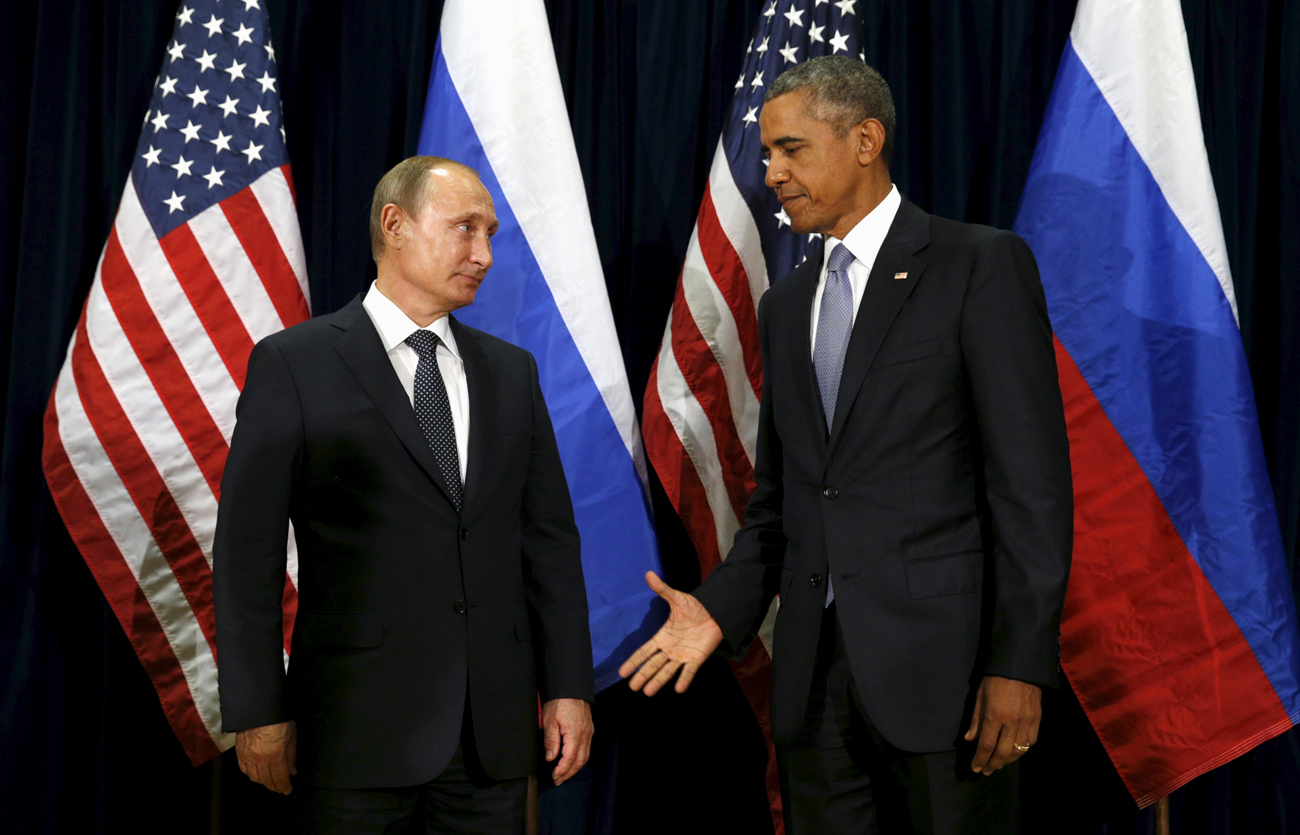
U.S. President Barack Obama extends his hand to Russian President Vladimir Putin during their meeting at the United Nations General Assembly in New York on Sept. 28, 2015.
ReutersDonald Trump will fail to substantially alter the U.S. policy towards Russia even if he wins the presidency, said John Mearsheimer, a professor at the Chicago University and a scholar of political science who established a neorealist school of thought in international studies.
“Trump [if he wins] would end up looking not much different than Hillary will end up looking when she replaces Barack Obama,” said Mearsheimer, speaking at the Valdai Discussion Club in Moscow on Oct. 18. “There is not much maneuver room in the American context.”
Though an ardent opponent of Donald Trump, the scholar agreed there were parallels between his own views and those of the Republican nominee.
“Donald Trump instinctively is opposed to global domination. He is more interested in restraint,” said Mearsheimer, who has previously laid the blame for the deterioration of Russia-U.S. relations at the door of U.S. foreign policy.
“The problem is that Trump gives our views a bad name, because so many people in the foreign policy establishment are axiomatically opposed to anything he says and therefore they are opposed, by definition, to our ideas of the importance of restraint [towards Russia],” said Mearsheimer.
Despite mounting tensions between Kremlin and the White House, Mearsheimer refuted the possibility of an open conflict between Russia and the U.S.
“Despite all of the bad blood between Russia and the United States today, I do not think that the most likely conflict is between these two countries,” said Mearsheimer, who has frequently warned the U.S. foreign policy establishment about the threats associated with the rise of China.
“The Russians and the Americans have no good reason to be competing with each other in a serious way,” said Mearsheimer, who argues that the importance of the European continent is diminishing in the eyes of the U.S. leadership, which must seek to reorient its foreign policy toward Asia.
All rights reserved by Rossiyskaya Gazeta.
Subscribe
to our newsletter!
Get the week's best stories straight to your inbox